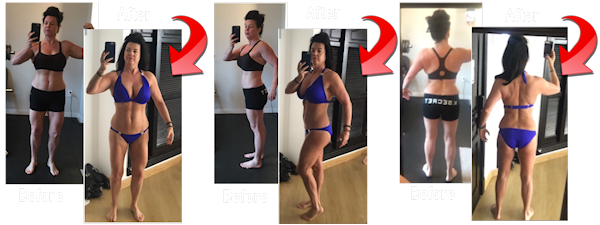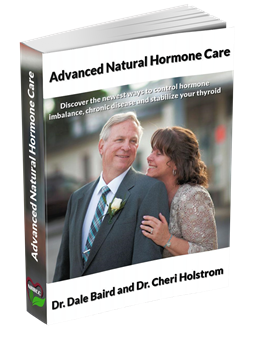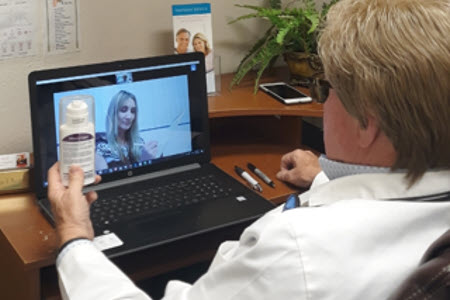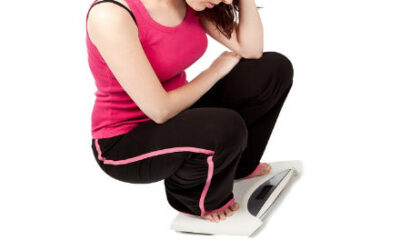Enjoying Life Again
Hormone Replacement Therapy
Feeling Good Again
Providing Hormone Replacement Therapy in Denver, CO. Area.
Hormone Replacement Therapy, commonly known as HRT, is a treatment that involves replacing hormones in the body to alleviate symptoms caused by hormone imbalances. Whether you’re experiencing menopause, dealing with thyroid issues, or looking for ways to manage hormonal fluctuations, understanding the ins and outs of HRT can provide valuable insights into how it can help restore balance and improve overall well-being. Our doctors can help you understand the procedure of HRT, explain its benefits, any potential risks, and everything you need to know to make informed decisions about your hormonal health!
Doctors Dale Baird and Cheri Hollstrom understand the importance of good hormone health. They take the time to listen and understand your concerns and build a personalized testing and treatment plan just for you. Dale and Cheri also understand how hard it is to find good providers that you trust with your health so they take it one step further by allowing you to schedule a 1 hour consultation at no cost to you so that you can meet them and make an informed decision.
What is Hormonal Imbalances?
Hormone imbalance refers to a condition where there is an abnormality in the levels or functioning of hormones in the body. This can occur due to various factors such as age, stress, certain medical conditions, or lifestyle choices. So when there is an imbalance, it can lead to a range of symptoms and health issues. Identifying and addressing hormone imbalances is important for maintaining overall well-being and quality of life.
Causes of Hormonal Imbalances
Hormone imbalance for many is caused by the natural results of aging. Our bodies go through gradual changes as we get older and that can cause imbalances. The good news is there are treatments to help correct the hormone levels.
However aging is not the only cause of hormonal imbalances. Stress in life, Thyroid disorders, Pharmaceutical drugs, Type 2 diabetes, obesity and weight gain, unhealthy diet, menopause, eating disorders, Pituitary tumors, primary ovarian insufficiency and Steroids are just some of the other possible causes.
This is why it is so important to consult with a professional doctor that understands all the possabilities and one that does targeted laboratory testing to find the true cause of the imbalanced hormone levels. After that a plan for treatment can be created that will get the proper results for you as an individual.
Natural Hormone Replacement Clinics of Colorado has the doctors and expertise to help you. We offer recommendations that are based on the latest clinical and research advancements, ensuring the success of your personal hormone therapy.
If you are in Denver or any of the surrounding areas then we would honor the opportunity to consult with you and to help get the balance back in your life.
Why Hormone Balance is Important
Maintaining a proper hormone balance is crucial for overall health and well-being. Hormones play a vital role in regulating various bodily functions, including metabolism, growth, reproduction, and mood. Imbalances in hormone levels can lead to a wide range of health issues, such as weight gain, fatigue, mood swings, sleep issues and even fertility problems. Therefore, it is essential to prioritize hormone balance through healthy lifestyle choices, regular exercise, and proper nutrition to optimize physiological functioning and promote overall wellness.
Common Symptoms of Hormonal Imbalances
Symptoms of hormone imbalance vary depending on the specific hormones involved, but common signs include fatigue, weight gain or loss, mood swings, hot flashes, irregular menstrual cycles, decreased libido, sleep disruption and changes in appetite. These symptoms can impact physical, emotional and intellectual well-being, highlighting the importance of seeking medical evaluation and treatment for hormone imbalances.
Understanding what Hormone Replacement Therapy is and the importance of maintaining a balance to your hormone levels is the first steps but now it is time to get answers to your specific issues.
If you are ready to:
- Learn if you have Hormonal Imbalances and the causes.
- Learn how our Hormone Replacement Therapy works!
- Learn the Types of Hormones we use in our HR Therapy.
- Learn the delivery methods we use in our Hormone Replacement Therapy.
- Learn specific Benefits of Hormone Replacement Therapy for you personally.
- Learn how you can get relief from Menopausal Symptoms.
- Learn how HRT can improve the Quality of Your Life.
Then we are ready to help you.
The science of Hormone Testing, Nutrition Testing, Genetic Testing, and Anti-Aging constantly evolves, with new discoveries emerging almost daily. For many years, our doctors have been at the forefront of understanding medical research in natural nutritional medicine. So why not enhance the quality of your life now? With our proven natural hormone replacement therapy, you can trust the stability and quality of our products and services. Our focus is exclusively on helping you manage the aging process, regardless of your age, and get you back to enjoying life.
Book your appointment today. Don’t put off getting your life back on tract and enjoy life again.
Or call us at: (303) 460-0867
Or call us at:
(303) 460-0867
How are we different from other HRT Clinics?
Simple: We test and don’t guess with your health. We get results, not only with alleviating hormone symptoms but with menopause, hot flashes, night sweats, sleep, insomnia,low energy, weight gain, moods, fatigue, depression, anxiety, food allergies and Leaky Gut Syndrome. Our Doctors are trained experts in managing the NATURAL Bioidentical Treatment of Hormonal, Thyroid and Adrenal/Cortisol imbalances and have been in clinical practice for 37 years. We have successfully treated hundreds of women and men. We try to use your insurance, FLEX and HSA accounts to keep your out of pocket costs as low as possible. Care Credit is also available. With Natural Hormone Replacement Therapy within the first year most patients can reduce or eliminate some of the treatment and replace with realistic exercise and sensible diet…we want your body to do what it was designed to do…take care of itself.
Cortisol, Weight Gain and Hormone Balance
Is Cortisol the Reason I Gain Weight? We all have stress. Our life style has changed dramatically in just the last 3 generations. Humans have always had stress….going back 1000's of generations to the Paleolithic era when ancient humans developed a protective...
BHRT Natural Hormone Replacement Therapy Doctor Near Me
Do you feel you might be in Menopause or Perimenopause? Symptoms of menopause can come on at different ages for different women due to many issues. Perimenopause starts when periods become irregular and can last over a year. We associate perimenopausal symptoms such...
Help for Perimenopausal Symptoms Near Me
Fatigue, restless nights with night sweats and hot flashes during the day, irritability, low moods, weight gain, loss of libido are to list a few main Perimenopausal symptoms you may be experiencing. What are Perimenopausal Symptoms Perimenopausal symptoms often...
We Are A Trusted Name In Hormone Replacement Therapy
Find Out For Yourself Why Patients Love and Trust Our Services
This husband and wife duo are the real deal!!! I HIGHLY recommend them! They are like family when you walk in, they not only help you through figuring out natural hormone replacements or food allergy testing, they truly care for each and every patient. They take their time to get to know you. You don’t feel like another number walking in and out of their door, but you truly feel cared for and listened to. They’ve helped our family with Numerous issues… READ MORE
I took my blood work to my PCP and he said he had never seen a Glomerular Filtration Rate at 104.4. He had seen 100. He was super impressed with that and all my numbers. He said we could try going without my cholesterol medication for 3 months and then check it. We had a long visit about what y’all are doing for me and he was very happy about it. Yay!!
Check out these results!
Body Fat Loss with Hormone Balance and Toxic food elimination.
Jacquline B.

Or Checkout what Lindsay A. had to say…
I had been to different doctors over the years, each with a suggestion or a medication that they thought would help…none did. I suspected hormonal imbalances, and finally, the exhaustion got so bad that I Googled “fatigue, hormone, natural, Colorado” and found Natural Hormone Replacement Clinics of Colorado…
I waited a full year to tell you who the doctors were because I wanted to be sure it worked before recommending them. Today, it has been one year and two days…! I have gone from four days a month of total, extreme exhaustion to just needing a nap here and there.
I am thankful to Dr. Hollstrom and Dr. Baird… READ MORE
Available Treatment Programs
We Have What You Need When It Comes To…
Female Hormone Replacement
Male Hormone Replacement
Leaky Gut Syndrome
Natural Weight Loss
Causes of Fatigue
Depression Treatment
Depression treatment that encompasses testing of neurotransmitters can yield essential information for relief of symptoms. Testing of specific neurotransmitters…
Thyroid Imbalance
Hormone Testing*
Gene Testing
*Our product and product statements haven’t been evaluated by the U.S. Food & Drug Administration and are not intended to diagnose, prevent, cure or treat any disease.
Natural Hormone Replacement Clinics of Colorado
80 Garden Center
Building A Suite 240
Broomfield, Co 80020
PHONE (303)460-0867; FAX (303)650-0244
Email:








